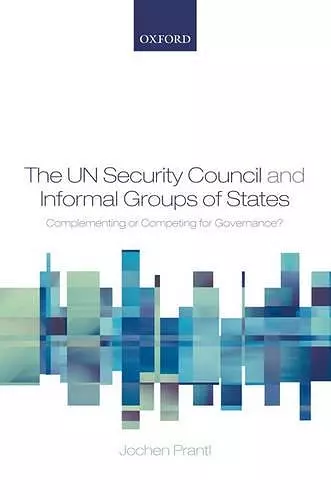The UN Security Council and Informal Groups of States
Complementing or Competing for Governance?
Format:Hardback
Publisher:Oxford University Press
Published:27th Apr '06
Currently unavailable, and unfortunately no date known when it will be back

This book provides the first comparative treatment of the roles of informal ad hoc groupings of states within selected conflict settings and their effects on governance in and out of the UN Security Council. Since the 1990s, informal institutions such as groups of friends, and contact or core groups have proliferated as instruments for the management of risk and conflict due to the increasing demands on the UN Security Council to adapt to the new post-cold war security environment. The perception of both the capacity and limits of the Security Council has had a catalytic effect on the creation of these ad hoc mechanisms. The substance of conflict resolution and the process of its legitimation tend to become increasingly detached, with the former being delegated to informal groups or coalition of states, while the Security Council provides the latter. The successful merger of right process and substantive outcome may strengthen the legitimacy of the Council and make actions taken by informal institutions more acceptable. This book seeks to establish the importance of informal ad hoc groupings of states in the making of peace. The dynamics between informal institutions and the Security Council are closely examined in the context of conflict resolution in Namibia, El Salvador, and Kosovo. The study illustrates the changing role of the Council in the maintenance of international peace and security. The decentralization of tasks to informal groups allows the achievement of policy goals that would be unattainable in the centralized setting of formal international organizations. In effect, informal institutions are agents of incremental change.
...this book is a must read for those involved in research on the UN...It is well written, erudite and persuasively argued...[with] originality and insight into a relatively unknown aspect of international relations. * Political Studies Review *
ISBN: 9780199287680
Dimensions: 242mm x 162mm x 23mm
Weight: 628g
314 pages